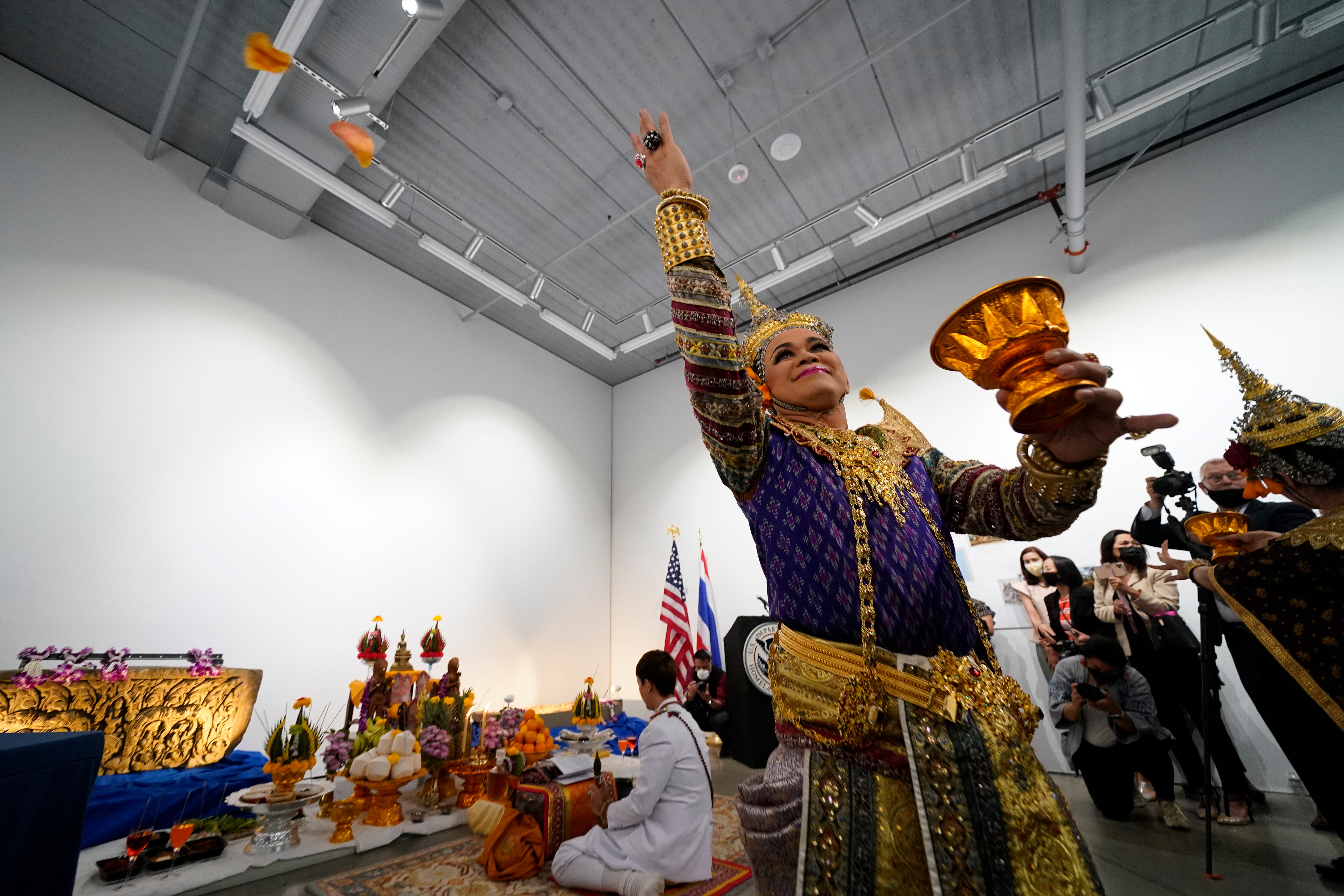Religious artifacts returned to Thailand after decades
Two stolen hand-carved artifacts, sandstone lintels dating back to the 9th and 10th centuries, were returned to the Thai government on Tuesday in a ceremony more than 50 years overdue

Your support helps us to tell the story
From reproductive rights to climate change to Big Tech, The Independent is on the ground when the story is developing. Whether it's investigating the financials of Elon Musk's pro-Trump PAC or producing our latest documentary, 'The A Word', which shines a light on the American women fighting for reproductive rights, we know how important it is to parse out the facts from the messaging.
At such a critical moment in US history, we need reporters on the ground. Your donation allows us to keep sending journalists to speak to both sides of the story.
The Independent is trusted by Americans across the entire political spectrum. And unlike many other quality news outlets, we choose not to lock Americans out of our reporting and analysis with paywalls. We believe quality journalism should be available to everyone, paid for by those who can afford it.
Your support makes all the difference.Two stolen hand-carved religious artifacts, sandstone lintels dating back to the 9th and 10th centuries, were returned to the Thai government on Tuesday in a ceremony more than 50 years overdue.
The 1,500-pound (680-kilogram) antiquities had been stolen and exported from Thailand — a violation of Thai law — roughly a half-century ago, authorities said, and donated to the city of San Francisco They had been exhibited at the San Francisco Asian Art Museum.
San Francisco, which owns the museum, agreed to hand over the ancient sandstone slabs, which had been structural parts of two religious sanctuaries in northeastern Thailand, following a three-year investigation by the U.S. Department of Homeland Security and a civil lawsuit.
Records showed that the lintels had been obtained by a collector in galleries in London and Paris in the 1960s, according to the civil complaint. The collector, Avery Brundage, was apparently aware that at least one of the lintels had been illegally taken out of Thailand, the complaint states. Brundage, a former controversial president of the International Olympic Committee who donated the art to establish the museum, died in 1975.
The Thai government had been trying to get the museum to return the artifacts since 2016, to no avail. The Los Angeles Times reported the mystery surrounding the lintels, and various attempts to return them to Thailand, in March.
The San Francisco city attorney did not immediately return a request for comment on Tuesday.
U.S. officials stressed the importance of repatriating stolen cultural artifacts. The repatriation ceremony, which included Thai dancers and prayers, was held in Los Angeles because the consulate is in the city — which also has the largest Thai population in the U.S.
The Thai ambassador to the U.S., Manasvi Srisodapol, called the ceremony part of the lintels' “sacred journey back home" and acknowledged the ongoing illegal trade of Thai artifacts in the black market.
“I do wish that the story of the Thai lintels will help raise public awareness to prevent removal of historic, religious and cultural treasures form their original sites in local communities," he said.
David Keller, the Homeland Security Investigations special agent who oversaw the repatriation case for nearly four years, said officials believe European dealers illegally exported the lintels out of Thailand. The antiquities' combined estimated value is $700,000.
Tatum King, the special agent in charge for HSI in San Francisco, said the case reinforces the need for museums and art collectors to inventory their items and see if any are in fact stolen artifacts.
“Museums are often the front line of this and we need their help,” King said.